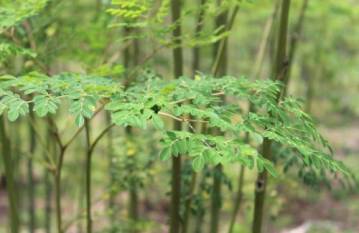RIYADH / Saudi Arabia, 30 June 2025: In a transformative move that redefines desert agriculture, Tanmiah Food Company has introduced a circular farming model that is addressing water scarcity, reducing carbon emissions, and boosting local food production in Saudi Arabia’s arid heartlands.
With over 680 million litres of wastewater recycled annually, Tanmiah’s waste-to-value system is irrigating plantations of Moringa trees—a climate-resilient species used both for carbon sequestration and animal feed. The initiative is a major step toward Saudi Arabia’s Vision 2030 targets and offers a replicable blueprint for food-insecure arid nations worldwide.
Water-Smart Agriculture in the Desert
Saudi Arabia faces one of the world’s most severe water scarcity challenges, relying heavily on food imports and costly desalination. Instead of treating wastewater as waste, Tanmiah now recycles effluent from its poultry operations through onsite treatment plants, converting it into a life-giving irrigation source.
These efforts are central to its One Million Trees Initiative, which aims to plant a million trees to restore degraded land, reduce heat stress, and act as carbon sinks. As of Q1 2025, over 550,000 Moringa trees have been planted, already absorbing 114,800 tons of CO₂ equivalent emissions.
Moringa: A Local Supercrop with Global Impact
Referred to as the “miracle tree,” Moringa oleifera is central to this regenerative system. Not only does it thrive in poor, dry soils, but its high-protein leaves serve as a halal-certified animal feed, reducing Tanmiah’s dependence on imported soy and corn.
“Our goal is to grow feed locally, conserve water, and enhance resilience through smart land use,” said a Tanmiah spokesperson.
Further, when added to livestock diets, Moringa has been shown to reduce methane emissions, a promising tool in climate-smart animal husbandry.
Collaborations Fuel Tech-Driven Regeneration
To enhance outcomes, Tanmiah partnered with global agri-tech innovators in 2024:
- Desert Control’s liquid natural clay improved water retention in sandy soil.
- Responsive Drip Irrigation (RDI) enabled precision watering using root-driven sensors.
- Terraxy, a Saudi startup, enhanced soil microbiomes for better nutrient uptake.
- Together, these partnerships validated a scalable and tech-enabled regenerative agriculture approach for desert environments.
Impact Metrics & Policy Alignment
Tanmiah’s circular farming contributes directly to national goals:
- Water reuse: 680M litres annually
- Tree planting: 550,000+ Moringa trees
- Carbon capture: 114,800+ tons of CO₂
- Feed import substitution: Reduces 90% import reliance by 2030
The project supports the Saudi Green Initiative, part of the nation’s commitment to plant 10 billion trees, and complements Saudi Arabia’s net-zero emissions goal for 2060 and Circular Carbon Economy framework.
A Model for Arid Nations
Tanmiah’s success reveals how integrated circular farming—that links waste management, renewable water, soil regeneration, and feed innovation—can build climate resilience even in harsh desert ecosystems.
With global demand for sustainable livestock farming rising, this model holds potential for Africa, Central Asia, and Middle East regions, where desertification, food imports, and water scarcity pose mounting risks.
In an era where agriculture must produce more with less, Tanmiah’s model illustrates a new direction: regenerative, circular, and inclusive farming designed not just to survive, but to thrive.
Image credit: aduna.com




















